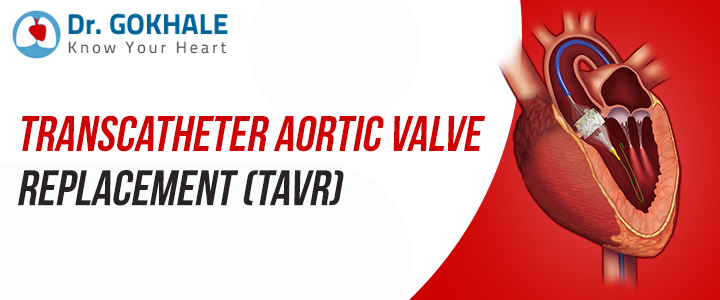A minimally invasive, non-surgical procedure called transcatheter aortic valve replacement (TAVR) can replace your heart’s aortic valve. Developed initially as a surgical option for high-risk patients who were too ill to undergo surgery, this treatment is nowadays being used more frequently for patients with low risk as well.
The valve known as the aortic valve is located between the lower heart chamber (left ventricle) and the body’s primary artery known as the Aortais. The overall blood flow initiating from the heart to other parts of the body decreases if the valve fails to open normally. The primary symptoms of aortic valve stenosis include exhaustion, fainting, discomfort in the chest, and shortness of breath, all of which can be improved by TAVR by restoring blood flow.
Individuals who are at risk of experiencing issues from open-heart surgery for surgical aortic valve replacement, TAVR is a feasible choice to consider. For those in Andhra Pradesh or Telangana, making the final decision to treat aortic stenosis with TAVR should perhaps be made after seeking assistance from the best cardiothoracic surgeons in Hyderabad such as Dr. Gokhale so that the most relevant solutions and treatment can be identified.
Why is Transcatheter Aortic Valve Replacement Done?
Aortic valve stenosis, also known as aortic stenosis, is treated by transcatheter aortic valve replacement (TAVR). Aortic valve stenosis arises when the aortic valve, which is part of the heart, hardens and becomes rigid.
The valve is unable to open completely which results in the hindrance of blood flow to the body. Open-heart aortic valve replacement surgery can be substituted by TAVR. TAVR patients tend to spend less time in a medical facility than those who undergo surgical aortic valve replacement. Cardiac surgeons in Hyderabad may advise TAVR for the following reasons:
- If an individual is experiencing various symptoms of severe aortic stenosis.
- If the aortic valve is failing to function adequately.
- If the risk of loss from an open-heart valve replacement surgery is too high and dangerous for the concerned patient.
What follows the procedure?
The general anesthesia or the moderate sedation will likely be stopped after the TAVR surgery is complete, allowing the patient to wake. However, the best heart transplant surgeon in Hyderabad keeps the patient in bed for a minimum of a few hours. This is because an important blood vessel serves as the catheter’s entry point, and before allowing the patient to stand up, doctors want to make sure the stitches are secure because if they aren’t, the blood vessel could rupture and bleed profusely.
A few days following TAVR treatment, the patient will likely begin a cardiac rehabilitation program that your medical experts will probably recommend. Cardiac rehab programs feature a group of medical professionals from several specialties, much like a recommended exercise routine. Exercise physiologists, dietitians, doctors, and other professionals are among them. Their mission is to assist you in strengthening and endurance-building your heart, which will aid in recuperation and long-term outlook.
Final Overview
AGK Gokhale is one of the best heart transplant surgeons in Hyderabad, renowned for his success in performing heart transplantation surgeries and treating patients with various heart-related ailments. If you are seeking medical assistance for heart-related issues, consider consulting Dr Gokhale for effective treatment.













